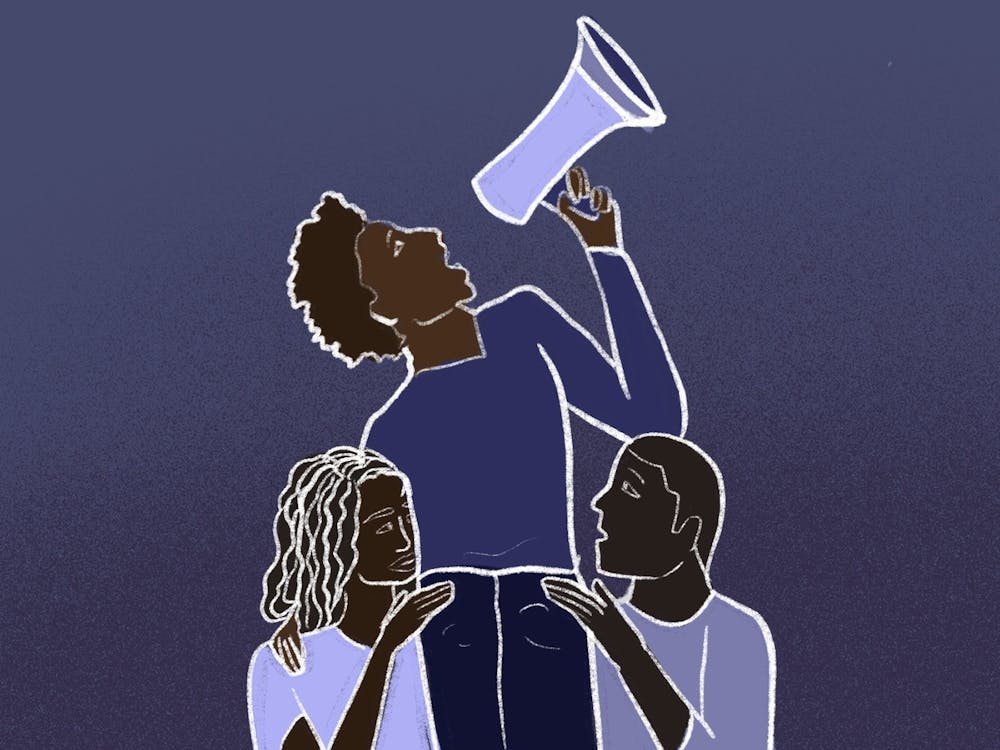Black students at UF have the opportunity to share their stories through a research project funded by UF’s Racial Justice Research Fund.
In July, the university dedicated $400,000 to support research about racial justice and inclusion on campus in response to UF President Kent Fuch’s June statement vowing to focus on the Black experience, racism and inequity this academic year. Proposals for grants ranging from $15,000 to $75,000 were accepted until Sep. 28, and one of the grants was awarded to the racial justice initiative, a project to elevate Black student voices by gathering stories and conducting subsequent research.
Amid the Black Lives Matter protests, Fuchs promised a plethora of changes including racial inclusivity training, ending the university's ties with prison slave labor and name changes for campus buildings. Various departments and colleges responded by holding town halls, creating committees and reviewing course curriculum.
Enrollment of Black or African American students at UF has stayed under 10% since 2008, and in the Fall, Black students made up 5.85% of UF’s total enrollment, according to the official enrollment data.
This research initiative is one of the latest efforts to improve the Black experience at UF, a predominantly white institution.
Yewande Addie, a UF health communication doctoral student, said the stories will be archived and preserved through the Samuel Proctor Oral History Center. In the future, people can see what it was like to live as a Black student at a predominantly white institution during a time defined by COVID-19 and racial reckoning.
“We can relay any challenges to Black students with regard to their experience at UF, as well as what things work well for Black students here, what things make them feel included and a part of the Gator community,” she said “As long as you are a UF student and identify yourself as Black, you have a certain set of experiences that are relevant to this project.”
Addie said eligible students can share their experiences and stories through self-guided prompts. They can record the audio in person at the Samuel Proctor Oral History Center in Pugh Hall or record themselves and submit it by email to Addie at yewande.addie@ufl.edu or the the study team at rji@africa.ufl.edu. They have up to ten minutes to share their stories and can remain completely anonymous if they wish.
Stories will be collected until March 24. After that, UF assistant research scientist Dalila D’Igneo and UF postdoctoral research associate Shani Kerr will guide the peer research team through a qualitative analysis looking for ways UF is succeeding in fostering racial diversity and areas that require improvement.
“Hopefully this will encourage students to continue to share their stories beyond the life of our grant,” Addie said.
Lynsey Saunders, a UF mass communications doctoral student, has assisted Addie with the project. The 33-year-old said she thinks it will inform and shape the future of the university through strategic planning and policy implementation.
“We’re in a very critical time right now with a lot of reconciling as it relates to social justice and race, specifically for the African Americans and Black people in this country,” she said. “I think that this study and the effects of this study are just a microcosm of what’s kind of going on in the bigger picture.”
The grant also funds ten undergraduate students who applied to be a part of the initiative’s peer research group. The team brings awareness to the project and curates the Black students’ shared experiences.
“The pool of applicants was really, really strong,” Saunders said. “What it really boiled down to, on top of them having such strong applications was this passion they had to join the team and really be a part of something that was going to hopefully aid in changing policy and informing the policy on the university.”
One of the peer research team members, Daniel Adewunmi, said while he is optimistic the project will create change for current and future students, much of its success relies on action from UF administration.
“It’s often very easy, specifically as a Black student, to feel like your voice will be disregarded because it’s happened so many times in the past,” the 21-year-old UF biochemistry and sociology senior said. “But I think that seeing this initiative is evidence of at least moving in the right direction.”
Adewunmi said as a Black man, his racial identity presents itself in practically every facet of life, which is something non-Black people would be surprised by.
“While there have been challenges, I've greatly enjoyed and appreciated my community and the people I've met here,” he said. “I would hope for that experience to only be improved and made better for future Black students to come to this campus.”
This article has been updated to reflect that students can record audio in person for the research project. The Alligator initially reported otherwise.
Contact Abigail Hasebroock at ahasebroock@alligator.org. Follow her on Twitter @abbeyhasebroock.

Abigail is a second-year journalism major covering university general assignment news for The Alligator. When she’s not catching up on school or reporting, she’s spending time outside, reading or reorganizing her Spotify playlists - usually all at the same time.






